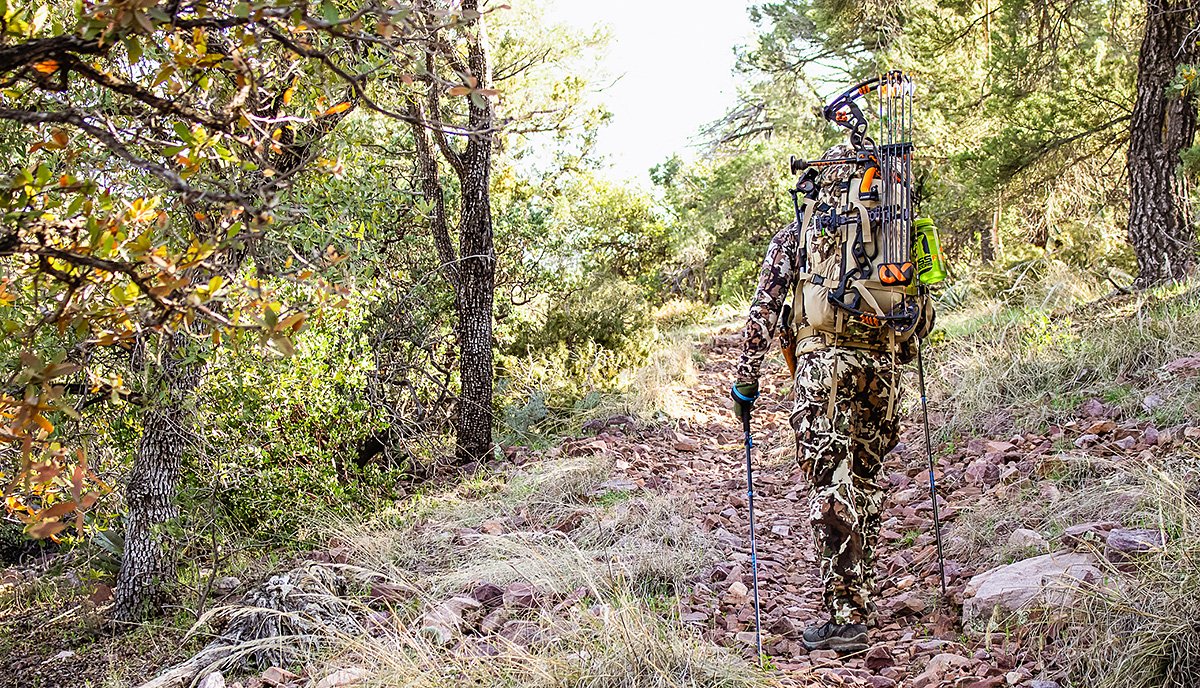
What if your next hunt was ruined by something simple and preventable? In hunting, many things are outside of your control, so it is critical to make sure that you control what you can. Ensuring that your equipment is ready for the demands of hunting is one of the simplest, yet most important things you can do.
Your weapon and other gear are your tools, and when something doesn't work right, it can easily cost you an animal that you have worked so hard to pursue. Here are some small equipment checks that will pay off big in the end.

All Things Bow and Rifle
This should be a given, right? It should be a no brainer to check anything and everything having to do with our weapons. Yet time and time again, things happen to folks in the field that leave them wishing they would have. You need to cross your T's and dot your I's here. Make it a habit to go through your weapon and make sure all of your bolts are tightened and that everything is working properly before your next hunt. Small things, like keeping an eye on the condition of your bow's D-loop, mean everything when coming to full draw on that big buck or bull. Talk about a punch in the face, literally. I can remember a time when my best friend had a Coues buck within bow range on a rainy day in August. While trying to coming to full draw on this deer, his quiver fell off of his bow. That cost him that buck and he learned a valuable lesson that evening. The fact of the matter is none of us are perfect and it is only human for us to make mistakes. What we learn and put into action from those mistakes though is what is important.
Shoot Today, And Tomorrow
While we are chatting about our weapons, it's important to make sure we are shooting them consistently. Don't be the guy or gal that picks up their bow or rifle a week before season to start practicing. We've got all year to practice that, and while I'm not telling you that you have to shoot all year, I am telling you that you probably have the time to start earlier than right before a hunt. This is a vital part of the preparation and one that should not be taken lightly. The better one wields their weapon, the faster that animal will likely fall. And that's what we all want, right?
Grab a Sharpie

Last year I was sitting down at the bottom of a canyon with my bow, waiting for a bear to walk by. That evening I saw a bear feeding along a bluff across the canyon from me. I made the loop around, came in over the top of him and missed twice. To be honest, it was so epic that I was still excited even after missing. What I didn't realize at the time was that as I was "rodeoing" my way over to the bear, my bow had slammed up against some boulders on my way. Shot my bow the next morning and I was hitting about a foot high across the board. My sight had gotten bumped on my way to the bear. Since then, I make sure to mark my sight's position with a sharpie and if it gets bumped, I'll know. You might feel weird about taking a sharpie to your pretty and expensive bow, but it could go a long way in the future. I always have an allen wrench in my pack. If the sight gets bumped, all I have to do is move it back to where it should be using the marks from the sharpie.
Is It Truly Waterproof?

There are a lot of things out there that say they are waterproof, but after some testing, you might find out that they aren't as waterproof as you thought. This can go for boots, shelters, clothing, etc. Because you can't always trust what you read on a product's description, I think it is important to test this stuff out. This is even more critical if you plan on backpack hunting. I can't tell you how many times I have set up a shelter in my backyard and sprayed it with a hose to see if it leaks. I'll shoot the hose straight up into the sky to make it feel like it's raining. I got good at that when I was a young lad! Or if you have a rainstorm come in while you're at home, grab some of your gear, go outside and test it out. I even will test DWR coating on clothing to make sure it beads water. When testing boots, I'll just straight walk through a puddle of water or creek to see if they leak. Better yet, stand in the water for a minute. Knowing your gear like this will help you be better prepared for the future. Whether that means your trust elevates for a certain product, or it means you need to go back to the store/order something else.
Learn Your GPS

The GPS technology that we have these days is just incredible. Never have I ever felt safer walking around the mountains. When I was a kid, we never traveled that far from the truck, because we just didn't want to get turned around. Once I got a GPS, that all changed. The upsides of having a GPS though aren't worth squat if you don't know how to use it and if you don't make sure it works properly. This is something I will routinely do whenever I get a new device. I'll do things like walking around my neighborhood, so I can let my GPS guide me back home. On short little day hikes, I'll do the same and mark a waypoint on my truck. Not only is this important to make sure that the device or app is working properly, but it's also important so that you get the hang of using it. Just recently, I got turned around while we covered a ton of miles on a turkey hunt. In the end, I had to use my watch to get me back to the trail. Had I not tested it out beforehand, that process would have been a lot more stressful.
Also, if you run an InReach for communications, make sure that you test out the text messaging before you leave for your hunt. This will give you an idea of how long it takes for a message to go through and if everything is set up properly.
Power Up

While most things are rechargeable these days, there are still some things that take batteries. And some rechargeable items can still use traditional batteries as back-up. I like to carry an extra set of batteries plus a fresh set in the unit. Most of the time, everything is fine, but if you get stuck on an overnight tracking job, that headlamp is going to be put to work way more than usual. Making sure that your batteries are fresh beforehand and having a backup set could pay big dividends in the end. When the lights go out in the backcountry, it is truly dark. Maybe, it's just me, but I like being able to see what I'm doing. And be sure to carry extra batteries for your rangefinder. In general, batteries tend to die when you need them most, so always be prepared to change them out.
All of these tips I've listed above aren't a secret. They are simple and practical, yet some folks, including myself, fall victim to not paying attention to them. I've heard a lot of people say things like, "Aw, it'll be fine." Here's the thing though — things are fine until they're not and our equipment is no exception to that. Hunting is hard enough as it is. To have something as measly as a loose bolt ruin things for us is just hard to swallow. After all of the scouting, training, and shooting in preparation for the season, a bolt takes away an opportunity? There are some things that we just can't control, I know this. However, the more stock we put into some of these equipment checks, the less likely we are to have mishaps in the field. This leaves more time to focus on hunting, and most importantly, more time to soak up the adventure that the backcountry offers.
Josh Kirchner is the author of the book, Becoming a Backpack Hunter, as well as the voice behind Dialed in Hunter, a blog that not only documents his own journey, but provides gear reviews, tips/tactics for western hunting, and encourages other hunters to chase and achieve their goals. Josh is a passionate bowhunter that has been hunting with his family since he was a small boy. When he is not chasing elk, deer, bear, and javelina through the diverse Arizona terrain, he is spending time with his wife, daughter, and two herding dogs.
